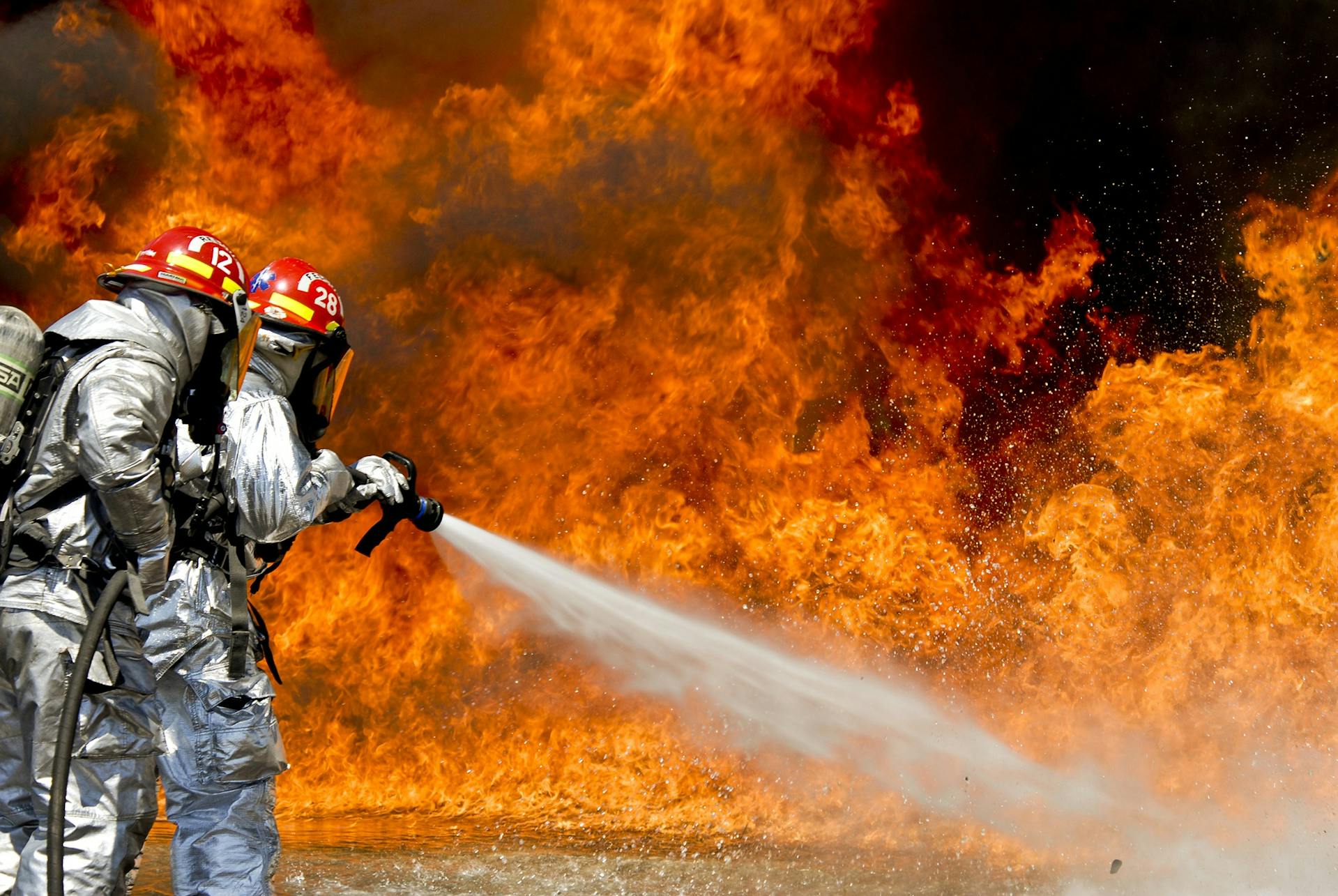Firefighting teams from different parts of the country are working hard to stop the Quaker Run fire that’s spreading in Madison County. The fire started on October 24 and has already burned around 2,800 acres, including private, state, and federal lands. It’s a big risk for local neighborhoods and the animals living there.
Intense Efforts to Contain the Fire
Even though firefighters are trying hard to surround the fire, it keeps crossing the lines they set up. This is causing problems for the teams. Firefighters from Virginia and other places, like Utah, are joining forces to fight off the flames and protect buildings and houses from being destroyed.
The fire, called the Quaker Run fire because that’s where it started, is tough for the firefighters to manage. It’s spreading fast because of all the dry plants and changing winds, and this is making standard firefighting methods less effective. The crews have to change their plans quickly to deal with new dangers as they come up.
Cory Swift, who speaks for the Virginia Department of Forestry, says the fire is mainly moving west. This means it’s getting closer to Shenandoah National Park and Rapidan Wildlife Management Area. But because wildfires can change so quickly and the area is hard to move around in, it’s really hard for them to guess when they’ll be able to put the fire out.
Heightened Risk Amid Drought Conditions
A drought in the area is making things worse because dry conditions mean fires can start easier. Officials are telling people to be very careful, especially if they’re doing something outside that could start a fire, like burning leaves or trash. Since everything’s so dry and ready to burn, there’s a chance the fire could get a lot bigger.
A Critical Issue
The Quaker Run fire highlights the risks for communities in areas prone to wildfires. Recently, these fires are more common and fierce, driven by climate change, how we use land, and what we do. Taking steps to prepare and lessen their effects is vital for keeping communities safe and reducing damage from fires.
Community Support and Evacuation Precautions
During this emergency, communities have come together to help fight the fire and assist impacted people. The help from locals, businesses, and groups is key in keeping spirits high and ensuring everyone works well together.
The huge smoke clouds from the fire have raised worries about air quality and health, leading officials to suggest those nearby leave the area voluntarily. People living close to the affected zone should listen to these recommendations and put their safety first until things improve. Efforts are also being made to help those who need it the most, like older individuals and people with breathing problems, to cope with the smoke.
Long-Term Mitigation and Recovery
As firefighters make headway in controlling parts of the fire, they’re also busy making sure it’s completely out and there’s no chance of it starting up again. They’re focused on dealing with any remaining heat trapped in the ground debris.
After the Quaker Run fire, attention will turn towards…
Efforts to fix the damage caused by the fires and help communities bounce back are underway. This involves fixing ecosystems hurt by the fire, putting up erosion barriers to stop mudslides after the fire, and giving counseling and monetary help to those who’ve been hit hard.
Once the fire is totally out, the Virginia Department of Forestry will start a thorough probe to figure out how it started. Finding out who might be responsible is key, and it will help put in place steps to avoid this kind of thing happening again. The lessons from the Quaker Run fire will also shape how we deal with wildfires moving forward, making sure we’re ready next time.
Conclusion
The Quaker Run fire is a stark reminder that wildfires are always a risk, especially where it’s dry and the environments unstable. Firefighters are showing relentless courage, and residents need to stay safe and help out as needed. If we all keep our eyes open and tough it out, our communities can face down these wildfire challenges and come out the other side tougher and better equipped for whatever comes next.











+ There are no comments
Add yours